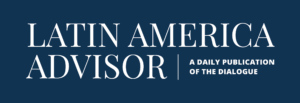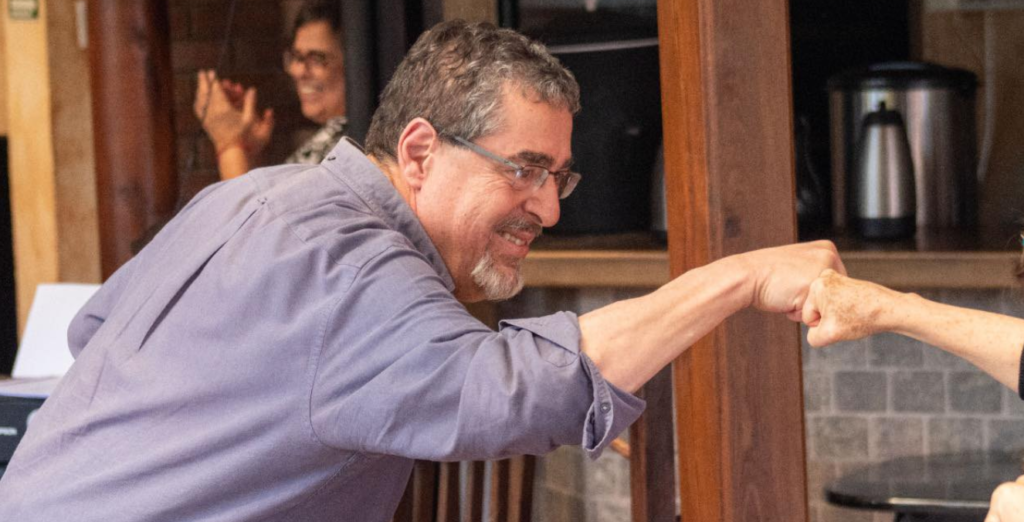Major developments over the past year in Latin America have included the defeat of the Peronists and the election of libertarian Javier Milei as Argentina’s president, the unexpected election and subsequent prosecutorial pursuit of Bernardo Arévalo as president of Guatemala and the early exit of Ecuadorean President Guillermo Lasso, who ended his own term and that of the National Assembly that sought to impeach him, leading to the election of President Daniel Noboa. What will be the political hot spots to watch in Latin America and the Caribbean in 2024? Where will political risk be the highest in the region in the coming year? What lessons from 2023 should the region’s leaders carry into 2024?
Peter Hakim, member of the Advisor board and president emeritus of the Inter-American Dialogue: “Optimism about Latin America remains scarce. In the past few years, the bulk of the region’s countries have continued their backslide on many critical fronts. 2024 promises little improvement. Political polarization and populist leadership are challenging (and often defeating) democratic principles. Economic growth has been painfully slow. Many nations remain steeped in debt, while poverty and inequality increase. Military forces have assumed greater authority. Criminal violence and corruption are expanding, along with a growing disregard for human rights and the rule of law. Yes, some countries are doing better. Brazil and Chile are strengthening their economies and governing institutions, while they struggle with polarized politics and difficult public security issues. Most other nations are in worse shape. On the verge of economic collapse, Argentina has elected a political novice with extreme economic and political views. Whether he initiates a recovery or triggers a deeper crisis is unpredictable. Ecuador’s election was prompted by a political stalemate that left the country ungovernable. The newly elected president’s main task is to avoid political or economic chaos prior to a mid-year election. The Guatemalan election took place in August, but corrupt officials continue trying to block the clear winner from taking office. Three elections scheduled for 2024 further convey the political turmoil and growing democratic decline in Latin America. The Mexican election will be conducted fairly, but democracy is endangered by the growing power and its vicious use by the country’s cartels, the military’s taking charge of many civilian responsibilities and the weakening of regulatory and judicial independence. In El Salvador, the judiciary is allowing President Bukele, who bears responsibility for massive human rights abuses, to run for an unconstitutional second term. Venezuela’s still unscheduled election will assuredly keep President Maduro in power. Indeed, Venezuela should be grouped with Nicaragua and Cuba, countries without free elections. The most crucial event for Latin America next year could be the U.S. presidential election. A Trump victory could well sharply diminish remaining U.S. engagement in hemispheric affairs.”
Joy Gallup, partner at Baker McKenzie: “Upcoming elections, economic issues and the ongoing effects of past political crises will continue to create turbulence in Latin America and the Caribbean in 2024. For example, Mexico is electing a new president in June. While most expect President Andrés Manuel López Obrador’s hand-picked successor, Claudia Sheinbaum, to prevail, lacking his populist appeal will likely require her to seek greater compromise to govern. In Venezuela, presidential elections are expected in 2024, though the process is likely to be extremely volatile given the high stakes. General or presidential elections are also scheduled in El Salvador, Panama, the Dominican Republic and Uruguay; however, the effect of the U.S. presidential election in November may have a greater impact on the region. While there has been increasing economic growth in the region since the pandemic despite inflationary pressures, the pace of growth is forecast to slow in 2024, despite lower interest rates. The high rates of income inequality and slow growth are an ongoing challenge to social and political stability in the region. Drivers for economic growth, such as nearshoring, the energy transition and technological advancements, are hampered by insufficient infrastructure and investment from deeply divided governments. Chile (where constitutional reforms from both the left and right failed to pass), Peru (where protests over the removal of the prior president have weakened the current government), and Ecuador (where an interim president serves without a governing coalition in the legislature) are lessons on what to avoid. Finding common political ground and economic growth are key to lowering risk.”
Peter DeShazo, visiting professor of Latin American, Latino and Caribbean Studies at Dartmouth College and former U.S. deputy assistant secretary of state for Western Hemisphere affairs: “The economic and political outlook for 2024 in Latin America is challenging. Only low/modest economic growth is projected for the entire region, even less for South America, with lingering high levels of inflation and unemployment, a lackluster global environment for commodity demand and investment and significant constraints on public spending to alleviate social ills. Such circumstances, combined with the growing profile of organized crime in some countries, put additional pressure on already weak institutions of governance and the rule of law. Argentina faces a particularly rocky 2024 as the newly inaugurated Milei administration applies economic shock treatment that will likely exacerbate inflation and poverty in at least the short term and will produce a strong political backlash if Argentines do not see signs of progress within a matter of months. Peru’s democracy is under pressure, with public opinion overwhelmingly against both the Boluarte administration and the Congress and with the lingering El Niño phenomenon hammering Peru’s agricultural sector. The fate of democracy is at stake in Guatemala. Should authoritarian forces persist in efforts to block the duly elected Bernardo Arévalo from taking office, the response of the inter-American community and the United States will provide a litmus test of regional commitment to democracy. Venezuela’s strongman Maduro will not allow himself to be voted out of power—another looming challenge for U.S. policy. The vulnerability to natural disaster of the Northern Triangle countries of Central America remains a permanent threat to stability in that region.”
Roberta Lajous, former Mexican ambassador to Cuba, Bolivia and Spain: “Mexicans will face an election next June. Presidential candidate Xóchitl Gálvez, the judicial system and the electoral institutions are under fire from President Manuel Andrés López Obrador (AMLO). Because AMLO cannot run for re-election, Xóchitl will compete against his hand-picked candidate, Claudia Sheinbaum. Hopefully, Mexicans will go to the polls in June in unprecedented numbers and save Mexican democracy by voting for the opposition as 2023 elections in Latin America have shown possible. Mexicans will choose between Xóchitl´s three-party democratic coalition, growth through energy transition and economic integration in North America and Claudia’s continuity of AMLO’s so-called Fourth Transformation, resulting in democratic backsliding, support for fossil fuels, state monopolies, USMCA contention and unprecedented violence. Mexicans want opportunities for their children as Xóchitl’s example proves possible as a successful self-made businesswoman and later politician who came from poverty and an Indigenous background. Millions have voted with their feet and are emigrating, but family and community-oriented Mexicans would rather stay home. Xóchitl is an engineer who understands technological change and how to achieve it. She wants Mexico to reach global standards of education and to take advantage of the historical opportunity of nearshoring.”
 The Latin America Advisor features Q&A from leaders in politics, economics, and finance every business day. It is available to members of the Dialogue’s Corporate Program and others by subscription.
The Latin America Advisor features Q&A from leaders in politics, economics, and finance every business day. It is available to members of the Dialogue’s Corporate Program and others by subscription.


